 Petzlover
Petzlover Pachon Navarro is originated from Spain but Pekingese is originated from China. Pachon Navarro may grow 12 cm / 5 inches higher than Pekingese. Pachon Navarro may weigh 26 kg / 58 pounds more than Pekingese. Both Pachon Navarro and Pekingese has same life span. Pachon Navarro may have more litter size than Pekingese. Pachon Navarro requires Low Maintenance. But Pekingese requires Moderate Maintenance
Pachon Navarro is originated from Spain but Pekingese is originated from China. Pachon Navarro may grow 12 cm / 5 inches higher than Pekingese. Pachon Navarro may weigh 26 kg / 58 pounds more than Pekingese. Both Pachon Navarro and Pekingese has same life span. Pachon Navarro may have more litter size than Pekingese. Pachon Navarro requires Low Maintenance. But Pekingese requires Moderate Maintenance
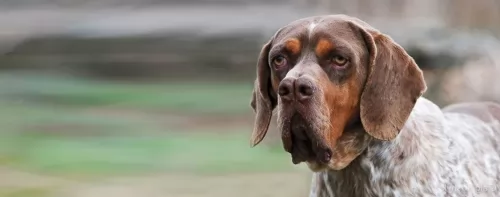 Known also as the Navarra Pointer, this is a Spanish hunting dog native to Navarre, Spain and descended from the extinct Old Spanish Pointer.
Known also as the Navarra Pointer, this is a Spanish hunting dog native to Navarre, Spain and descended from the extinct Old Spanish Pointer.
Major kennel clubs don’t recognize this dog as a standardized breed, but the Spanish Kennel Club has accepted the Pachón Navarro as a breed.
It is believed that this dog has also descended from other hounds as well as the Talbot hounds. It isn’t a new breed as it is thought that the dog originated in the 12th century already. There were times when the dog almost became extinct but efforts to preserve it have been made and to also establish it as a standardized breed.
 This is an ancient dog breed that originated in China. Known also as Lion Dogs, they are toy dogs that have always been a popular choice for Chinese royals.
This is an ancient dog breed that originated in China. Known also as Lion Dogs, they are toy dogs that have always been a popular choice for Chinese royals.
DNA analysis tells us that these dogs are one of the oldest dog breeds there are and over the years, the dog has barely changed in looks.
The dogs found their way out of China, and as they started spreading to the USA and the UK, Pekingese clubs started emerging. A pekingese dog was registered by the American Kennel Club in 1906, and the Pekingese Club of America was formed in 1909.
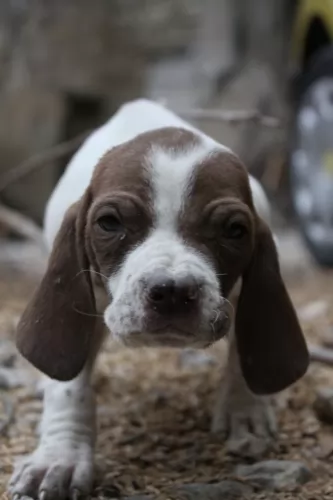 This dog is large sized, standing at between 48 and 57cm in height and weighing between 27 and 33kg. A most unusual feature and characteristic unseen in dogs in general is his split or double nose. The nose of the dog serves the same purpose however, as with any other dog.
This dog is large sized, standing at between 48 and 57cm in height and weighing between 27 and 33kg. A most unusual feature and characteristic unseen in dogs in general is his split or double nose. The nose of the dog serves the same purpose however, as with any other dog.
The head is fairly large with a broad forehead. The broad head of the dog is generally solid colored. The coat of the coat of the dog is short and of a hard texture. Colors of the coat are white and brown or white and black or white and an orangey color with ticking.
The eyes are large and brown, the ears are long and broad with a rounded tip and the tail is long too. These dogs have a strong, sturdy body with strong legs.
The Pachon Navarro is a friendly, social, intelligent, loving and loyal dog. He is also gentle and docile with an amicable nature, making him a splendid choice for those with children in the home as well as pets.
He is athletic and energetic and is going to need a good dose of daily exercise. Apart from their strong hunting instincts, they make excellent family pets and companions and is most certainly not a dog to be put outdoors day after day without the contact of his human family.
He is intelligent and a quick learner and will benefit from training and socialization as this makes him obedient and it also bring about positive changes with any bad behavior from this excellent pet.
He requires a kind, firm, patient and consistent owner. This particular dog won’t be suited to living in a tiny property in the city, as they require a lot of space to run and exercise.
 The Pekingese is a dog which stands at between 30 – 45 cm and weighs anything from 3 to 7kg.
The Pekingese is a dog which stands at between 30 – 45 cm and weighs anything from 3 to 7kg.
His double coat can be fawn, cream, apricot, grey, or black or even a mix of some of these colors.
The Pekingese is known for its flat- or squashed face and his large, bulging type of eyes. His body is low to the ground and is somewhat longer than what it is tall. He has long, silky, feathery ears and his tail is plumed and essentially held over his back. The face usually has a black mask.
The Pekingese is a stubborn, independent, intelligent dog, but with his human family he is loving and loyal. People often look at the Pekingese and think that it is a delicate dog that just wants to sit on your lap and be cuddled. But this isn’t the case and the Pekingese is a dignified, robust, bold, confident dog. He is essentially an indoors dog though and will be content for a while to lie close to his human companion. He is calm and quiet indoors but is also game for some activity, being quite a playful dog.
The Pekingese is the kind of dog that will slot easily into city or country living. He gets on well with children but if he could choose, he would prefer to live with calm, consistent adults, as he doesn’t gel too well with raucous, undisciplined children.
He is a wilful dog and will require being trained and socialized to make him obedient and more amicable.
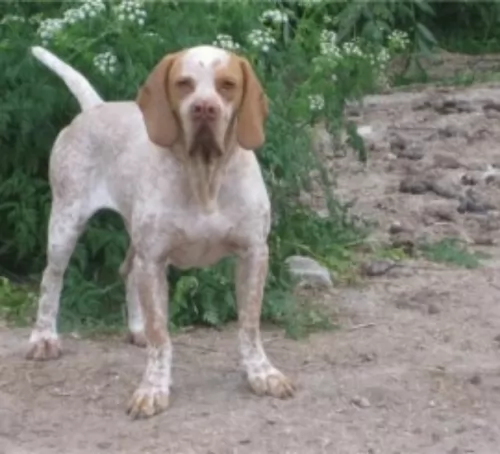 The Pachón Navarro is an active, friendly, playful, affectionate dog and he makes a great family pet. He will however want lots of outdoor exercise, making him a suitable companion for active owners. Inactive city dwellers should think of keeping a more docile kind of indoor pet.
The Pachón Navarro is an active, friendly, playful, affectionate dog and he makes a great family pet. He will however want lots of outdoor exercise, making him a suitable companion for active owners. Inactive city dwellers should think of keeping a more docile kind of indoor pet.
Your Pachón Navarro just loves the company of his human family and will be dejected if made to spend all his time outside and away from his owner.
He also takes his role as guardian and protector seriously. Give him what he requires and make him part of the family and he will be a most remarkable friend and companion.
 Sometimes when his hair has grown long and he has a ribbon in it he may be looked upon as shallow, pathetic and nothing but lapdog. In reality his heart is brave, tough, dignified and confident.
Sometimes when his hair has grown long and he has a ribbon in it he may be looked upon as shallow, pathetic and nothing but lapdog. In reality his heart is brave, tough, dignified and confident.
All the Pekingese wants is to be a normal and loving pet for the right kind of person who appreciates all his strong characteristics.
He is capable of being quite lively and protective of his human family. Give him love and treat him kindly and firmly and you’ll find out why he is such a popular dog breed.
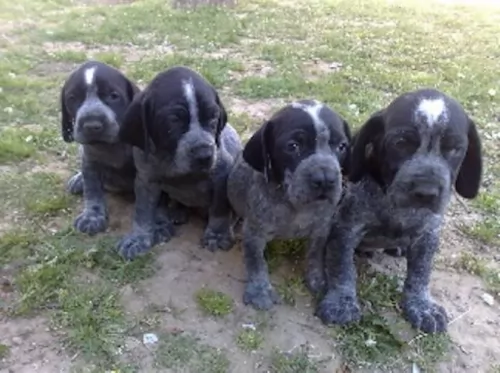 Pachon Navarros are generally healthy dogs and you’re not likely to spend much time at the vets with these dogs. They can reach up to 15 years of age if looked after well, but with the long ears they are prone to ear infections.
Pachon Navarros are generally healthy dogs and you’re not likely to spend much time at the vets with these dogs. They can reach up to 15 years of age if looked after well, but with the long ears they are prone to ear infections.
Moisture, wax and dirt can all build up inside the dog's ears and this can cause a painful ear infection with the dog scratching and pawing at his ear.
Bloat is another illness to look out for and you'll notice your dog is lethargic and has a swollen, hard stomach with gas being trapped inside. The condition is life threatening and will require a trip to the vet.
 The Pekingese can live to be between 10 – 15 years of age. One of the main medical problems with this dog is his squashed face which can be a source of breathing problems for him.
The Pekingese can live to be between 10 – 15 years of age. One of the main medical problems with this dog is his squashed face which can be a source of breathing problems for him.
The large, bulging eyes can also cause quite a few problems such as glaucoma, cataracts and eye ulcers. With Entropion the eyelid of the eye rolls inward and irritates the eyeball.
Your Pekingese shouldn’t be left outside as with his breathing problems, he isn’t good with regulating body temperature and can overheat in hot weather.
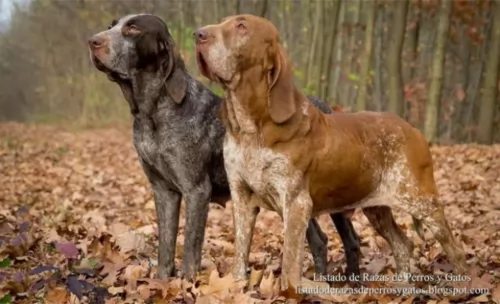 Your Pachon Navarros is a low maintenance dog and you will just be required to give him a good brush. He is a moderate shedder and this brushing down will keep the skin and coat healthy.
Your Pachon Navarros is a low maintenance dog and you will just be required to give him a good brush. He is a moderate shedder and this brushing down will keep the skin and coat healthy.
Because of his long, floppy ears, you will need to check inside them because moisture, dirt and wax can build up and encourage an ear infection. Don’t try to clean inside your pet’s ears if you’re not sure how, rather find out about cleaning the ears from the vet.
The nails will also need to be clipped as well as checking regularly on the eyes and teeth.
Your Pachon Navarro is a hardworking dog and you want to ensure tasty, palatable food that is properly digested and eliminated without problems. If you feed your dog a commercially manufactured dog food, choose the best quality and check out the labels.
Make sure that the food doesn’t contain lots of preservatives, colorants and fillers. Some of the best kibble has the right balance of vitamins and minerals in them. With these kind of hunting dogs, it is best to feed your dog hours before vigorous exercise such as a hunt.
Try and vary the regular kibble by adding in simple, but tasty home-made food occasionally. Dogs appreciate simple food without spices and exotic ingredients as its keeps their stomachs free from pain, gas and bloat.
Some chopped up boiled chicken, some brown rice or pasta and some vegetables such as sweet potato, carrots and spinach is super healthy for your pet as well as adding in a little bit of raw meat from time to time.
Remember clean, fresh water must be constantly available.
 Nothing is set in stone when it comes to the diet of your Pekingese or any other dog for that matter. How much a dog eats will depend on his breed, his age, his size and his activity levels.
Nothing is set in stone when it comes to the diet of your Pekingese or any other dog for that matter. How much a dog eats will depend on his breed, his age, his size and his activity levels.
Every dog is an individual and your Pekingese is too. Good food however dictates a lot on how healthy your pet will be so it will be to his benefit to give him the best quality commercially manufactured food there is.
He loves a bit of variety too so if you chop up some boiled chicken, brown rice and some wholesome vegetables such as carrots, spinach and sweet potato and add this to his kibble occasionally he will be delighted. He doesn’t want anything unusual or spicy because he can’t bear to have an upset stomach.
He must never be without a continuous supply of fresh, cool water.
The Pekingese doesn’t have serious exercise needs, and a little bit of running and exerting himself can have him snorting and grunting. A slowish walk outside will satisfy his exercise needs.
The coat of the Pekingese is long and thick and if you choose to keep it that way it will require brushing at least twice a week. Some people prefer to have the dog’s hair cut professionally as then it is easier to manage.